Scripting Uplifting TV
With a nearly three-to-one ratio between students and full-time employees, BYU Broadcasting gives students a wealth of opportunities for hands-on, real-world training in media and entertainment.
January 2018
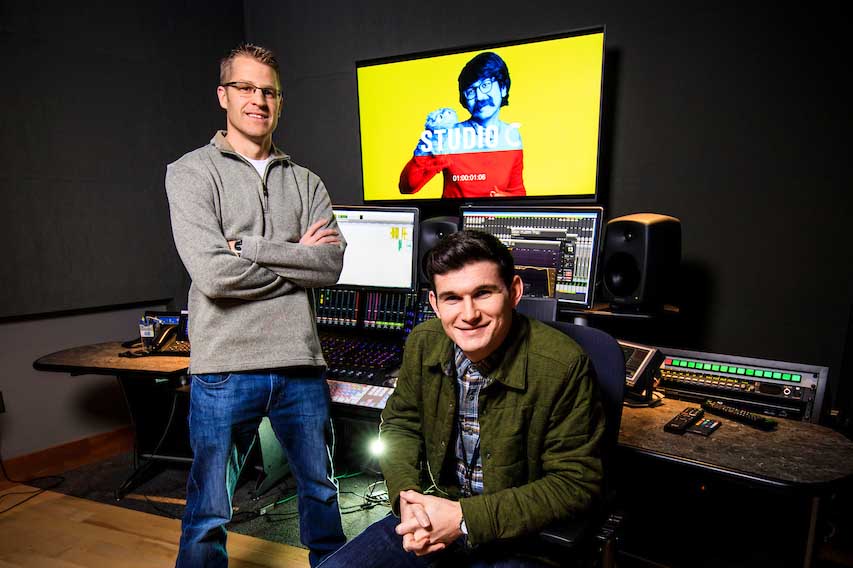
BYU Broadcasting’s audio post production team was in a bind. Supervisor Joseph Belliston was out of the office with a brand-new baby, and they needed work done on the station’s new promotional videos. The other supervisor handed the project to BYU student Cayson Renshaw, who’d only been on the job for a few months.
It went so well that when Belliston got back, he delegated the audio for promo videos entirely to Renshaw. “Cayson really started to excel,” Belliston says. “We realized that if you give students responsibility, they progress more quickly. So we started looking into giving more students more responsibility.”
This is just one example of how employment at BYU Broadcasting adds experiential learning to what students are learning in class. Around 300 students work alongside BYU Broadcasting’s 150 or so full-time employees, and they do everything from working the front desk to doing video production.
Belliston himself was once a student employee. In 2006, when he was an undergraduate studying music and audio engineering, he was in Renshaw’s shoes, managing projects for international broadcasts.
“I still feel today that you learn more in a week here than you do in a semester in the classroom,” Belliston says. “I kind of had to learn things on my own, so I’m just trying to be the guy I wish I had when I was a student.” He says that the most rewarding part of his job is watching students take the skills they’ve gained to work at Disney, Pixar, and other notable companies.
For some, BYU Broadcasting serves as a springboard to a career they’re already pursuing. For others, like Renshaw or Mackenzie McCoy, the experience helps them explore career options they previously knew nothing about.
McCoy had been considering television journalism, but when she had to leave behind her previous on-campus job, she took a position with BYU Broadcasting’s promotions team.
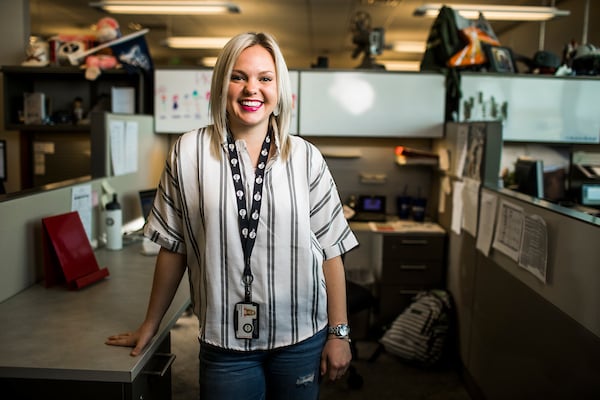
“I sent in my résumé in the beginning of March, and I didn’t hear back for two weeks,” she says. “So I emailed the human resources person and said, ‘Do you need anything more? I really want to interview here.’ I basically begged. They told me later, ‘What you did to bug us about the position is what you’re going to do in your job—reaching out, following up, and coordinating projects.’”
McCoy did so well in her new position that she was allowed to work full-time over the summer. When the fall semester came, her managers split her position into two, creating an opportunity for another student employee.
“I work with a lot of really cool mentors,” she says. “A lot of times, we have meetings where I’m the only student in the room. I’m learning and soaking in anything I can.”
Renshaw, whose position has given him much greater proficiency with sound-editing software, says he wishes all students could have a similar experience in their respective fields. “I don’t feel like it’s the norm for a lot of students,” he says. “But it’s an incredible opportunity. I’m really grateful that I have the job I do. It has opened my eyes to a whole bunch of options as far as careers go and has made me more capable of doing those things.”
Give to BYU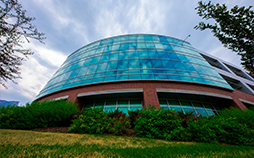
With a nearly three-to-one ratio between students and full-time employees, BYU Broadcasting gives students a wealth of opportunities for hands-on, real-world training in media and entertainment.
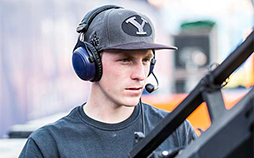
BYU Broadcasting offers a life-changing experience for student employees as they get hands-on, real world opportunities in the industry.
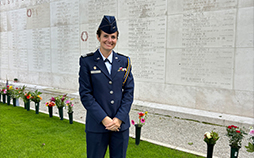
Students come to Brigham Young University seeking a unique collegiate experience. And no other university has the same expectation for a commitment to excellence alongside a mission to assist individuals in their quest for perfection and eternal life.